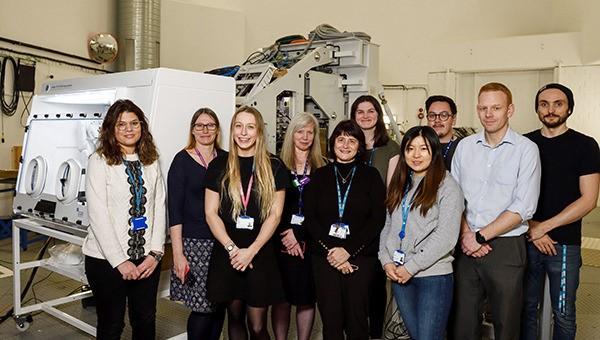Celebrating and reflecting on the milestone of our 100th Research Team Leader Course, this is the second of three short conversations with Professor Karen Kirkby who contributed to the original design and delivery of the course in 2006, exploring:
-
the culture of research
-
why train researchers in leadership and teamwork?
-
the impact of leadership training on my career.
Why train researchers in leadership and teamwork?
Shirley: Over the years you have spent a lot of time and budget on Leadership and Team Development. Why do you do that?
Karen: It means my teams do their jobs better. We end up speaking the same language. Having a shared language around how we lead enables more people to contribute and think about how we could improve.
Getting people into thinking groups and making sure everyone has a turn is easier if they have been trained. I want people to question me, and this training seems to give people the confidence to challenge. Good challenges depend on good listening too. Which is a corner stone of RTL and good leadership in general.
Shirley: Do you observe a difference between the teams who have been trained and those who haven’t?
Karen: It is very noticeable when teams have been taught to listen to each other. I find they support each other without being asked. This makes my life easier. People who come from other Institutions to work with us notice the difference. They often comment on how supportive we are. I am not saying it is all sweetness and light; but we manage to resolve our challenges by listening and talking.
We often use Belbin’s team roles. The concept of strengths and allowable weaknesses is very helpful to encourage tolerance. The thing that drives you nuts about a person could be the other side of the coin to the thing they contribute most valuably. It doesn’t mean it doesn’t drive you nuts anymore; it just means you understand it better.
It is quite rare for a project to struggle owing to technical skills. In my experience it usually has something to do with how the group interacts, communicates and organises itself. It is very important to share the same assumptions about how a project needs to function. We can examine our assumptions regularly and see if they are working for us.
I want Researchers to be aware that while they had the discipline specific training they needed, they didn’t have the training to run a research team, a larger project or a department. And that is one of the problems in Academic Leadership. I see a key part of my role as developing future leaders. I think the skills that are provided by RTL are a wonderful gift that stays with those who take part in the course throughout their career and helps them to fulfil their potential. Technical skills go out of date very quickly but the skills provided by RTL provide the bedrock for future growth.

Professor Karen Kirkby
Professor Karen Kirkby holds the Richard Rose Chair for Proton Therapy Physics which is a joint appointment between the University of Manchester and The Christie NHS Foundation Trust. She is the research lead for proton therapy in Manchester, bringing together the research effort on proton therapy between the University, The Christie and the CRUK Major Centre as a part of £250m investment in proton therapy. She also represents the UK internationally.
Karen has a grant portfolio of over £28m with funding and over 200 papers in peer reviewed journals, including Nature and has also written for popular science magazines and the broadsheets.

The next cohort of Research Team Leadership in Changing Times takes place on 14-15 October 2021. Find out more